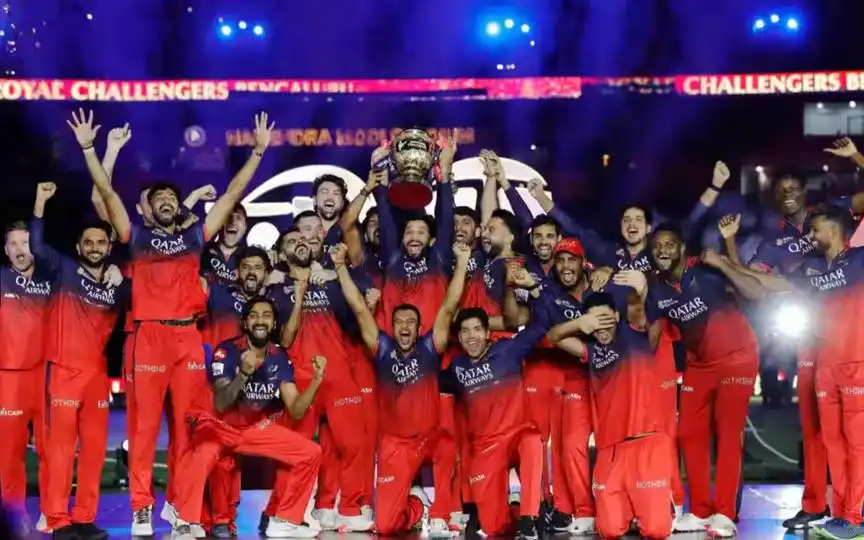![Ben Stokes and Ravindra Jadeja [Source: @mayankcdp/x.com]](https://onecricketnews.akamaized.net/parth-editor/oc-dashboard/news-images-prod/1753691334907_jadeja_vs_stokes(1)(1).jpg?type=hq) Ben Stokes and Ravindra Jadeja [Source: @mayankcdp/x.com]
Ben Stokes and Ravindra Jadeja [Source: @mayankcdp/x.com]
The final day of the Fourth Test between India and England at Old Trafford sparked division among the cricket fraternity and fans over a particular incident. The seeds were planted when Ben Stokes approached Ravindra Jadeja and Washington Sundar with 15 overs remaining in the game, offering to end the game in a draw.
What happened next was not something the English skipper expected. Instead of a routine acceptance, the Indian batters sitting on 89 and 80 respectively, chose to hunt down their well-deserved centuries.
Considering how the game is played and the rules and regulations governing it, let us examine who was right in the incident.
India's Position: Perfectly Legitimate
Even after considering multiple dimensions of sporting ethics, India's stance in the situation appears unassailable. First and foremost, both Ravindra Jadeja and Washington Sundar dug themselves in, showed amazing grit and perseverance to earn the opportunity to get past the three-figure mark.
After playing 140 overs in demanding conditions while trailing 311 runs at the start of the fourth innings, these batters displayed unparalleled fortitude to save their team from a humiliating defeat.
The significance of their impending centuries cannot be understated. While Sundar was approaching his maiden Test hundred, Jadeja was approaching a well-deserved reward for the perseverance and consistency he has shown in the series.
To even think that they should relinquish these personal achievements for England's convenience is to practically deny the essence of individual accomplishments in sports.
From a strategic perspective, India's decision was an example of astute cricket thinking. With only three days separating the fourth and final Test, making England toil hard seemed like a very sound tactic. This was not unsporting conduct; it was an intelligent and calculated cricketing move.
England's Frustration: Understandable Yet Misguided
The way England reacted was undeniably human and perfectly understandable. After holding the command for the majority of the match and watching a series win evaporate on the last day, watching India bat for personal milestones in what looked like a morbid state would test the patience of any competitive bloke.
However, in an attempt to question India's sportsmanship, their reaction transcended the boundaries of disappointment and raised doubts about their own sportsman spirit.
Ben Stokes' confrontation with Jadeja, particularly his acerbic statement regarding centuries against bowlers like Duckett and Brook, revealed a captain letting emotions get the better of him. The irony of the situation is not lost on cricket fans, a team that is renowned for its audacious cricket, termed 'Bazball', was suddenly advocating a premature draw when circumstances went against them.
England's deployment of part-time bowlers like Harry Brook, Ben Duckett and Joe Root inadvertently strengthens India's case in the matter. If the match was genuinely dead and had no competitive significance, why not graciously permit the batters who have worked so hard their moment of triumph?
The Broader Context
Cricket has celebrated individual achievement since its inception within the framework of collective success. The history of the game is replete with batters who have chased their own milestones, and never has such a pursuit been considered unsporting. Had it been Alastair Cook batting for his final Test century, even in a consequentially insignificant position, would the English players and cricketing community have reacted in the same way?
The cry over the "Spirit of Cricket' should be judged from bilateral merit. While some might contend that accepting a draw at that stage would have been the correct thing to do, others might argue that the fact that denying well-deserved centuries to opponents who had batted brilliantly under pressure was itself unethical to the noble spirit of the game.
The Verdict
Unequivocally and undeniably, India were justified in continuing their innings. They had earned that position through supreme skill, unwavering determination, and exceptional mental strength. To expect them to forgo individual achievements for the convenience of their opponents was not only unreasonable but also reflected an entitled mindset from England.
Cricket is the reflection of authentic competition, and it demands playing until the final delivery in a match is bowled. India precisely reflected that philosophy, and they valued every run scored, every celebration savoured, and every sword dance that followed.
.jpg)
.jpg?type=mq)
.jpg?type=mq)


